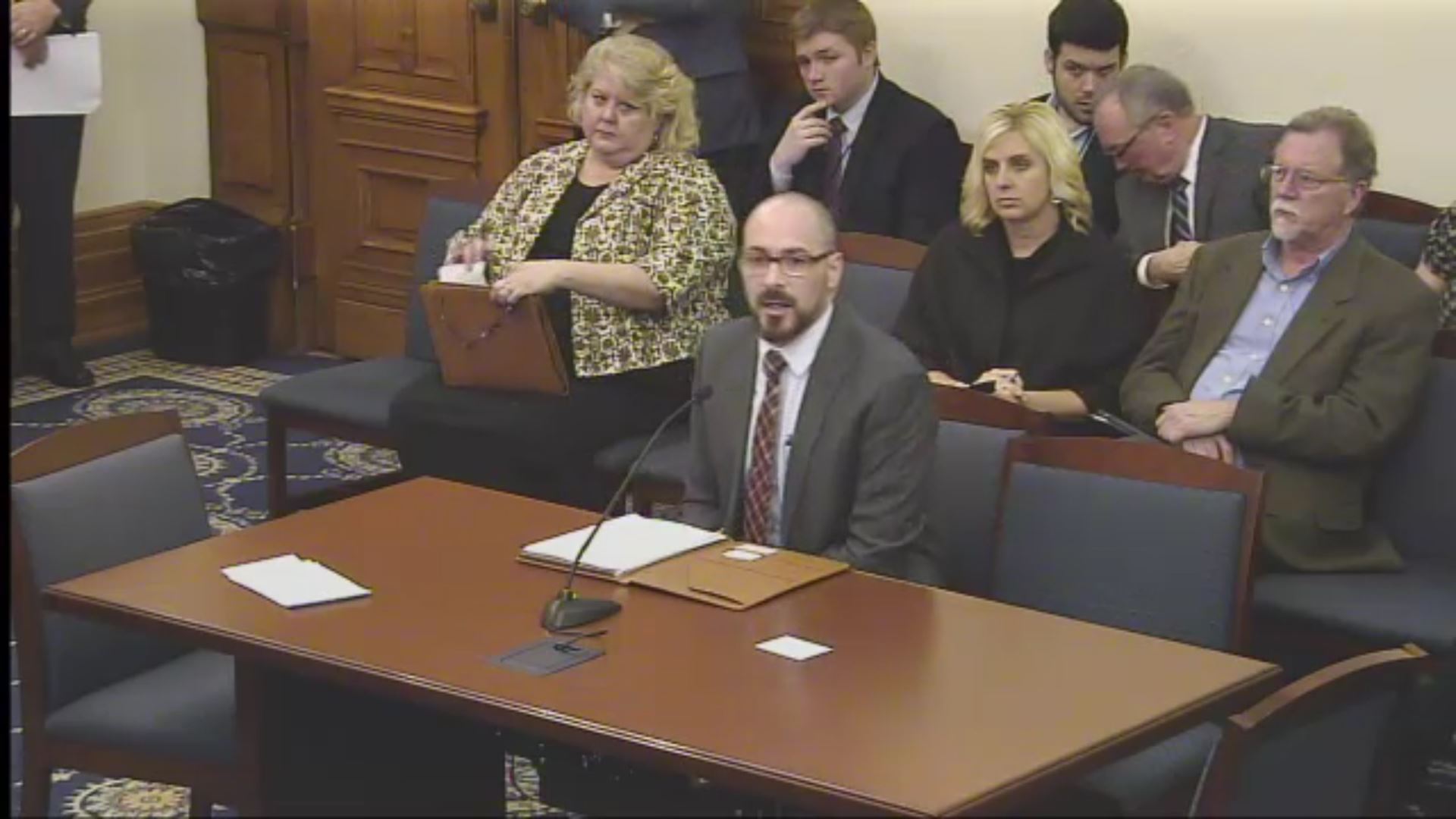On February 21, 2017, Steven Meyer, Executive Director of King Park Development Corporation, gave testimony before the Senate Committee on Tax and Fiscal Policy in support of Senate Bill 559. Read his full testimony below. SB 559 creates parity across the state by providing a property tax exemption for affordable rental housing properties owned by charitable organizations. The Senate Committee voted unanimously to pass the bill but with the contingency of working with counties to determine the specific wording of the legislation.

Thank you, Chairman Hershman and members of the committee, for the opportunity to offer our support for SB 559 and provide some context for the importance of this legislation. I would like to recognize and applaud Senator Eckerty’s leadership on this bill and in speaking up for charitable affordable housing organizations throughout the state on an issue that requires urgent attention and action.
I am here as the Executive Director of King Park Development Corporation, a non-profit community development corporation that provides high-quality affordable housing in Indianapolis. I am also here as a board member of Prosperity Indiana, a network of 230 non-profit organizations, units of local government, and private companies dedicated to building stronger communities.
Mark referred to a trend we are seeing now take hold statewide: increased reports from non-profits that are selling off properties they used to rent to low-income families because they simply cannot afford to fight exemption appeals. In 2010, several non-profit housing providers in Marion County had our exemption revoked. Over the past five years, King Park spent over $40,000 in staff time, attorney’s fees, and forfeited property taxes to have the exemption reinstated. If it weren’t for new leadership at the Assessor’s Office, the dispute might still be ongoing.
But the uncertainty around non-profit property tax exemptions has other implications, as well. Affordable housing is developed and operates with razor thin margins. An unanticipated exemption revocation is certainly enough to move a project from black to red. The risk and uncertainty is enough to raise financing costs and, in some cases, prevent otherwise sound projects from moving forward. King Park is experiencing this right now. We are refinancing a project that we’ve operated since 2010. Before the bank would offer us financing, we were required to obtain a legal opinion about the certainty of our current tax exemption. In addition, the bank has allocated nearly half the operating reserve requirement to risk associated with the property tax uncertainty. For a 13 unit apartment building, uncertainty around property taxes lead to an additional $30,000 in financing costs.
The risk from uncertainty does not just affect the non-profits that develop and operate these projects and the banks that finance them, either. Much of my organization’s funding flows from the federal government, through the city, and into our projects. In fact, all 23 entitlement communities in Indiana rely on non-profits like ours and other members of Prosperity Indiana to deliver this housing. If a project were to fail, the entitlement city could be responsible for paying back the funds invested into the project. These projects are aimed at lessening the burden of government by providing needed affordable housing, but a failed project can actually cost local governments significantly. This bill is specifically aimed at making these projects more stable across the entire state.
That is why we enthusiastically support SB 559, a bill that offers guidance for assessors reviewing charitable purpose exemption claims. The measure is narrow in scope and carefully tailored to ensure that it is not introducing a broad new category of organizations that will be property tax exempt. Quite the opposite is true. SB 559, as amended, will ensure that ONLY non-profits that operate affordable rental housing units for low- and very-low income families will benefit from this clarification. This legislation would not affect tax credit developments, for example, since those projects are almost exclusively held in partnership with a for-profit company.
Parity and certainty across Indiana’s 92 counties is essential. Many assessors recognize and endorse these services as not only exempt, but an important tool in reducing reliance on emergency housing services. Unfortunately, my organization and the members of Prosperity Indiana have no way of knowing from county to county and assessor to assessor whether or not their clearly charitable purpose will be recognized for property tax exemption purposes. We believe that non-profits fulfilling their charitable missions should receive equal treatment for property tax exemptions, regardless of where they are located in the state.
I urge the Committee to pass this bill and thank you for your time today.
 Steven Meyer is the Executive Director of King Park Development Corporation, non-profit community development corporation committed to improving housing, economic development, and quality of life in the King Park area of Indianapolis. He also serves on the board of directors of Prosperity Indiana. Steven was recently named to the Indianapolis Business Journal’s Forty under 40 class for 2017, in part due to his efforts to launch the Build Fund, a small business loan fund operated by King Park. Click here to read the full press release.
Steven Meyer is the Executive Director of King Park Development Corporation, non-profit community development corporation committed to improving housing, economic development, and quality of life in the King Park area of Indianapolis. He also serves on the board of directors of Prosperity Indiana. Steven was recently named to the Indianapolis Business Journal’s Forty under 40 class for 2017, in part due to his efforts to launch the Build Fund, a small business loan fund operated by King Park. Click here to read the full press release.